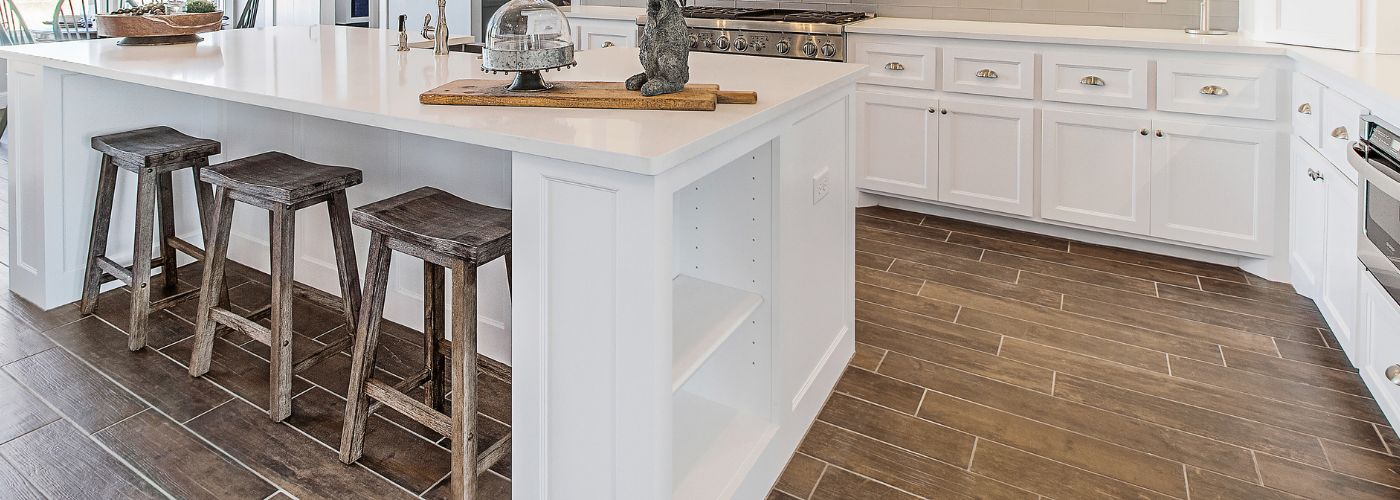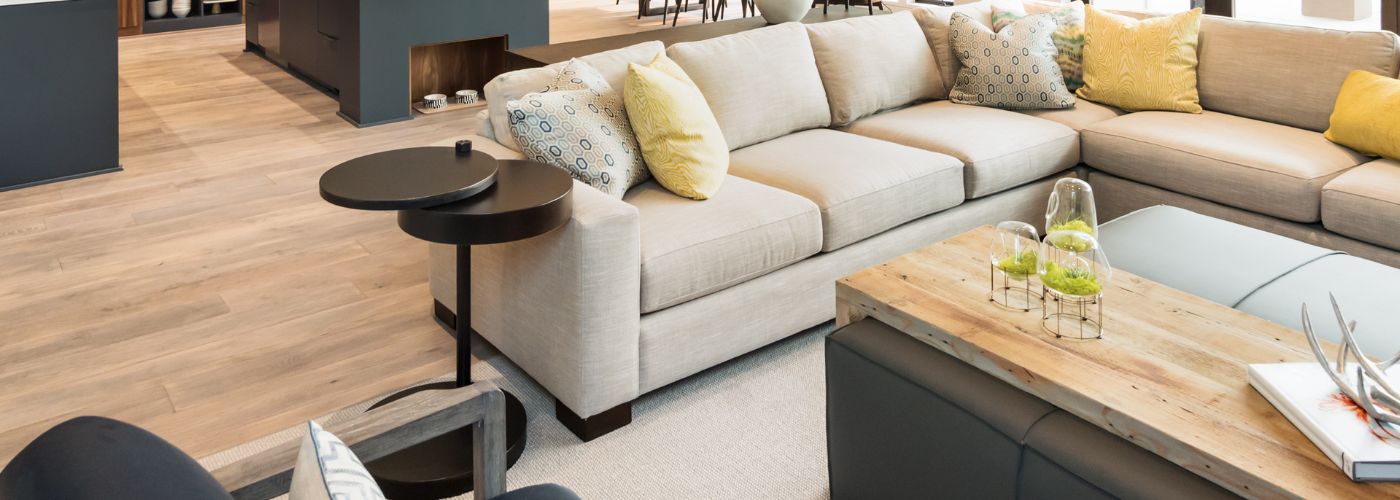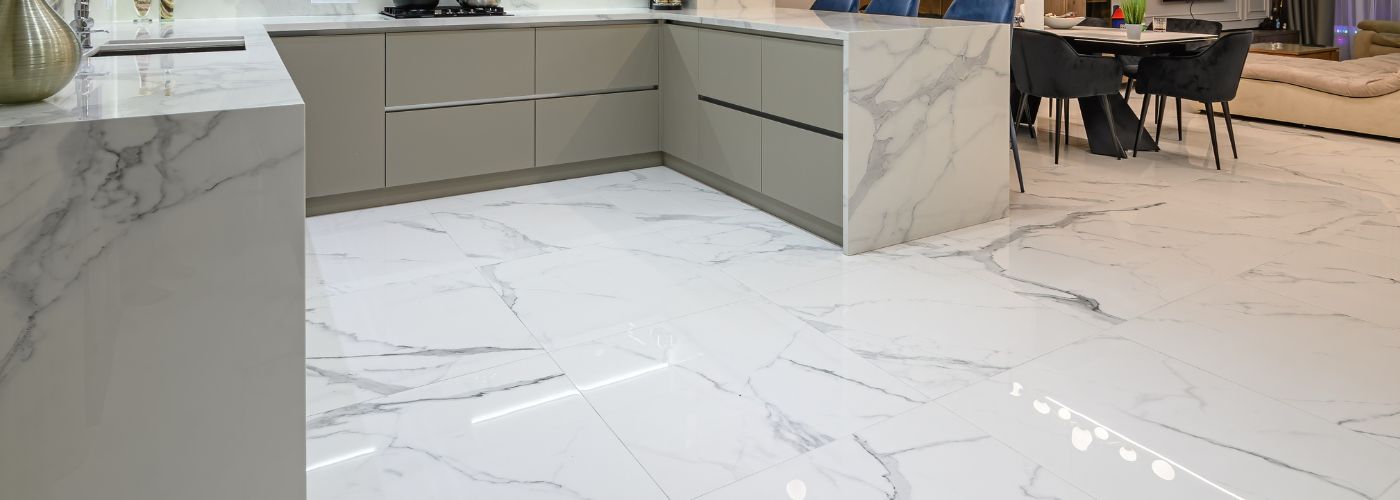Choosing the flooring for your home is a decision that goes beyond mere aesthetics; it’s about finding the perfect balance between style, functionality, and comfort. In the age-old debate of carpet vs tile, each option brings its own set of advantages and considerations. Join us on an exploration of these two flooring giants!
Differences in Carpet vs Tile Flooring
When it comes to choosing between carpet vs tile flooring installation, one of the key differences lies in maintenance. While carpets require regular vacuuming and deep cleaning to remove dirt and stains, tile flooring is generally easier to clean with a simple sweep and mop.
Additionally, carpet flooring tends to trap dust, allergens, and odors more easily compared to tile flooring, making it less ideal for individuals with respiratory issues.
Another important difference between carpet and tile flooring is their durability. Carpets are prone to wear and tear over time, especially in high-traffic areas, leading to matting or fraying of fibers.
Pros of Tile Flooring
One of the main advantages of tile flooring is its durability and longevity. Tiles are known for their ability to withstand heavy foot traffic, making them ideal for high-traffic areas such as kitchens and bathrooms.

Additionally, tiles are resistant to scratches and stains, making them easy to clean and maintain over time.
Another benefit of tile flooring is its versatility in design options. With a wide range of colors, patterns, sizes, and materials available, homeowners can easily customize their space to reflect their personal style.
In addition, tiles can be arranged in different layouts such as herringbone or diagonal patterns to create unique and visually appealing designs that enhance the overall aesthetic of a room.
Tile flooring is an excellent choice for those looking for a hypoallergenic option. Tiles do not harbor allergens like dust mites or pet dander, making them a great option for individuals with allergies or respiratory issues!
Cons of Tile Flooring
While tile flooring is undeniably stylish and durable, there are some significant drawbacks to consider. One of the main cons of tile flooring is the cost associated with both the material itself and the installation process.
Tiles can be an expensive material option compared to alternatives such as laminate or vinyl flooring. Additionally, professional installation can quickly add up, making it a costly investment.
Another downside to tile flooring is the maintenance required for keeping grout clean. Over time, grout lines can become discolored and stained, requiring regular cleaning and upkeep.
This task can be time-consuming and challenging, especially in high-traffic areas prone to spills and dirt buildup. While tile flooring offers many benefits, these drawbacks should be carefully considered before committing.
Benefits of Carpet Flooring
One of the key advantages is its ability to provide insulation and enhance energy efficiency in a home. The soft, plush surface of carpeting acts as a natural insulator, helping to maintain room temperature and reduce energy costs.
In addition, carpet flooring contributes to noise reduction by absorbing sound waves, making it an ideal choice for homes with high foot traffic or noisy environments. Carpet flooring is also very popular among homeowners looking to remodel their basement, as it can completely transform the living space!
Another compelling benefit of carpet flooring is its comfort and softness underfoot. Unlike hard flooring surfaces like tile or hardwood, carpets provide cushioning and support for your feet, making them perfect for homes where families spend long hours standing or walking.
Cons of Carpet Flooring
One of the main drawbacks of carpet flooring is its susceptibility to stains and dirt accumulation. Unlike hard flooring surfaces, carpets can easily trap spills and debris, making it more challenging to clean thoroughly.

This can lead to discoloration and unpleasant odors over time, requiring frequent maintenance and professional cleaning services.
Additionally, carpets are known to harbor allergens such as dust mites, pet dander, and mold spores, which can exacerbate respiratory issues for individuals with allergies or asthma.
Despite regular vacuuming and deep cleaning efforts, these allergens can still linger within the fibers of the carpet, posing a health risk to sensitive individuals.
In contrast, hard flooring options like wood or tile are easier to clean and less likely to accumulate harmful allergens in the home environment.
Average Lifespan of Carpet & Tile Flooring
When it comes to the average lifespan of carpet vs tile flooring, there are some key differences that homeowners should be aware of. Carpet flooring typically has a lifespan of around 5-15 years, depending on the quality of the material and level of foot traffic it endures.
On the other hand, tile flooring can last upwards of 20 years or more with proper care and maintenance.
One important factor to consider is that carpet tends to show wear and tear more easily over time compared to tile. This means that homeowners may need to replace their carpet more frequently in order to maintain a fresh look in their space.
In contrast, tile flooring is less prone to staining and damage, making it a solid long-term investment for those looking for a low-maintenance option.
Cost Differences With Carpet vs Tile Flooring
Carpet vs tile flooring have distinct cost differences that are worth considering when making a decision for your home. While carpet can be more budget-friendly upfront, it may require more frequent replacement due to wear and tear.
On the other hand, tile flooring tends to be more expensive initially but is generally more durable and long-lasting, ultimately saving money in the long run. Cleaning laminate tile flooring is also very easy compared to cleaning carpet.
In addition to installation costs, maintenance expenses should also be taken into account. Carpet requires regular deep cleaning and may need to be replaced sooner if stains or odors become difficult to remove. Tile flooring is typically easier to clean and maintain, reducing the need for costly professional services over time!
